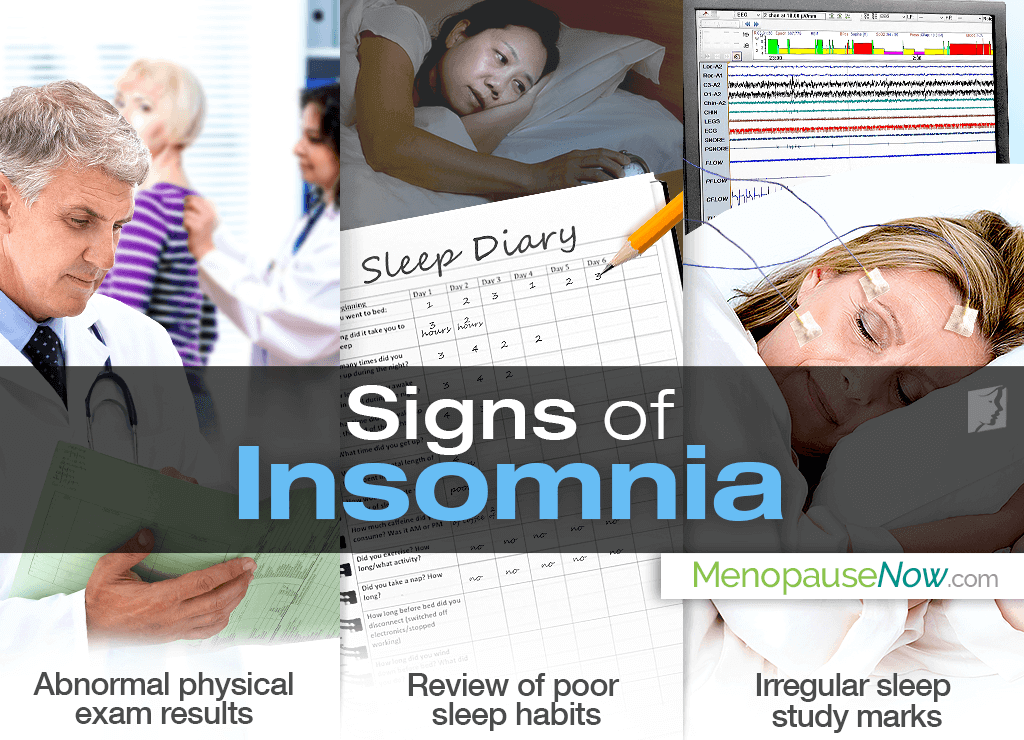Some women may feel like they've tracked all of the symptoms possible for insomnia, yet still come up with a blank as to how to be sure they have it. Continue reading to learn about the symptoms of insomnia, which are personally observable, and the signs of insomnia, which are measured by a doctor, in order to properly diagnose the condition and get a restful night's sleep.
Symptoms of Insomnia
Women who suffer from sleep disorders like insomnia commonly complain of the following symptoms before seeking diagnosis:
- Difficulty falling, staying, or returning to sleep
- Daytime fatigue
- Irritability, anxiety, or depressed mood
- Difficulty concentrating or remembering
- Not feeling well-rested after sleeping
Signs of Insomnia
After considering symptoms, diagnosing the condition involves taking into consideration the following signs of insomnia:
Abnormal Physical Exam Results
A physical exam conducted by your doctor will check for medical problems that could be the underlying cause of your insomnia, such as a goiter that would indicate a thyroid disorder. Occasionally, blood tests may be taken afterwards to confirm findings.
Review of Poor Sleep Habits
When attempting to diagnose insomnia, you will most likely be asked to keep a sleep diary for several weeks in order to track any poor sleep habits. You may also be asked to fill out a questionnaire in the doctor's office to govern your level of daytime sleepiness and sleep-wake schedule.
Irregular Sleep Study Marks
Sleep studies are reserved as a last resort when looking to diagnose insomnia. If the cause of your insomnia isn't clear, you may be asked to spend the night in a sleep center, which uses tests to monitor and record bodily activities while you sleep, including heart rate, breathing, eye and body movements, etc.
Treatment of Insomnia
For menopausal women, treatments for sleep disorders - including insomnia - revolve around resolving the hormonal imbalance at fault.
To do so, you are encouraged to start by making small lifestyle adjustments by optimizing your diet with plant-based estrogens, practicing stress-relief techniques, and having an appropriate sleep schedule. Also, stay conscious of using the bedroom for sleep only.
For best results, instill the use of alternative medicine, such as phytoestrogenic herbal supplements or hormone-regulating supplements, like Macafem. The latter can be used longer-term as they do not introduce exogenous hormones into the body.
Key Takeaways
Difficulty falling and staying asleep, daytime fatigue, difficulty concentrating, and irritability are just the tips of the icebergs when it comes to handling insomnia. Properly diagnosing and treating the sleep disorder involves taking into consideration the signs of insomnia as well proper treatment options according to its underlying cause, which is commonly attributed to hormonal imbalance in menopausal women. Take initiative and find the best options for you so that you can finally get the beauty sleep you deserve.
Sources
- Cleveland Clinic. (2015). 5 Signs that You May Have Insomnia. Retrieved February 19, 2019, from https://health.clevelandclinic.org/5-signs-that-you-may-have-insomnia/
- Mayo Clinic. (2016). Insomnia: Symptoms & causes | Diagnosis & treatment. Retrieved February 19, 2019, from https://www.mayoclinic.org/diseases-conditions/insomnia/symptoms-causes/syc-20355167 | https://www.mayoclinic.org/diseases-conditions/insomnia/diagnosis-treatment/drc-20355173




